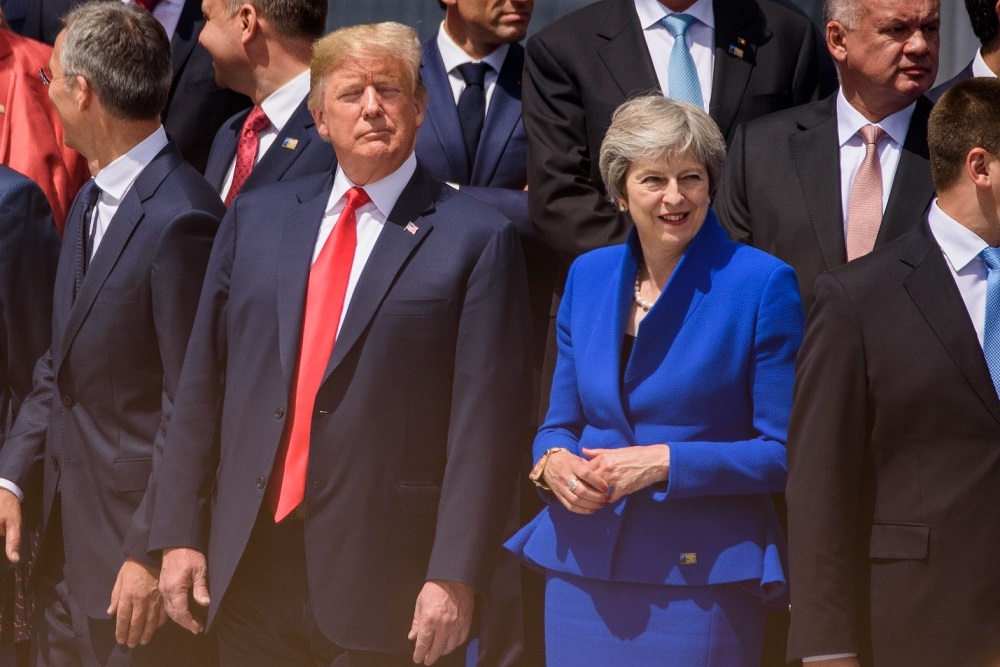Look, up in the sky! It’s a bird… it’s a plane… it’s… Tariff Man?
Tariff Man is not faster than a speeding bullet, stronger than a locomotive or able to leap tall buildings – including Trump Tower – with a single bound.
What Tariff Man can do – and it’s no small feat – is send our $30 trillion stock market into a tailspin, as President Trump did Wednesday when the Dow plunged nearly 800 points and the Nasdaq fell into correction territory in reaction to his now famous tweet that he is “a Tariff Man.”
This is hardly something to brag about.
On June 17, 1930, the U.S. government enacted the infamous Smoot-Hawley Tariff Act. It raised U.S. tariffs to record levels on more than 20,000 imported goods.
This populist legislation sounded appealing at the time – America First, right? – but it helped create and worsen the Great Depression.
Foreign governments retaliated by shutting out U.S. exports. International trade ground to a halt. The world economy contracted 25%. And a quarter of Americans were thrown out of work – and into bread lines.
This is something we want to emulate?
Earlier this year, President Trump said trade wars are “great and easy to win.”
Not so. Politicians everywhere want to benefit their constituents – and would prefer not to look like chumps. That makes trade concessions difficult.
Free trade – the voluntary exchange of goods and services without restrictions, quotas or tariffs – is the ideal.
But few politicians are committed to it, especially when there are votes to be won by protecting domestic industries.
I’m not excusing the unfair trade practices of the European Union and China. (Or China’s illicit ones.) President Trump is right to object.
The problem is he doesn’t view trade as a win-win, as all voluntary exchange is. Instead he sees it as an adversarial relationship with winners and losers.
That became clear when the European Union said it would accept zero tariffs on all products and services exchanged with the U.S. and Trump responded, “That’s not good enough.”
That tells you all you need to know about our president’s true thoughts on free trade.
Don’t get me wrong. President Trump has done a lot to promote the current economic expansion, including lower taxes, lighter regulation and other business-friendly policies.
But our self-proclaimed Tariff Man is undermining the stock market in two major ways.
The first is he doesn’t appreciate that foreign trade benefits us far more than it costs us.
The United States is the world’s third-largest exporter. But we are also the world’s single biggest importer. Americans love Japanese electronics, European cars, French wines, Italian shoes, Swiss watches, Dutch chocolates and designer clothing made in China.
It sounds alarming when you hear that we buy more from the rest of the world than it buys from us. But – unlike a household deficit – a trade deficit isn’t a debt that must be repaid.
As I’ve mentioned before, The Oxford Club runs a huge annual trade deficit with our printers. We buy much more in printing services from them than they buy in investment research from us.
Yet it’s a mutually beneficial relationship. We both profit from it.
Similarly, our national trade deficit is merely one number among many. If household income, household net worth and GDP are all rising, it really doesn’t matter.
(Trump should focus instead on the budget deficit. That is a genuine threat to our long-term prosperity.)
The second problem Tariff Man creates is regular uncertainty. Markets hate it, but he specializes in it.
He thinks it keeps his opponents off balance. That’s undoubtedly true, but would-be supporters also wonder what the heck he’s really trying to do.
His exaggerations, distortions and – let’s be frank – outright falsehoods keep investors in a near-constant state of confusion.
That is not a good thing.
Bottom line: To the extent that Trump is using tariffs to promote freer and fairer trade, they may still work. After all, no one truly wants a trade war.
No one benefits from one in the end. That’s why the smart money remains optimistic.
But Trump’s unclear objectives and muddled messaging undermine the financial markets.
And that isn’t likely to end until formal agreements are reached with our major trading partners.
Good investing,
Alex
